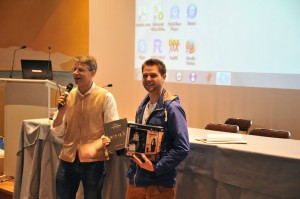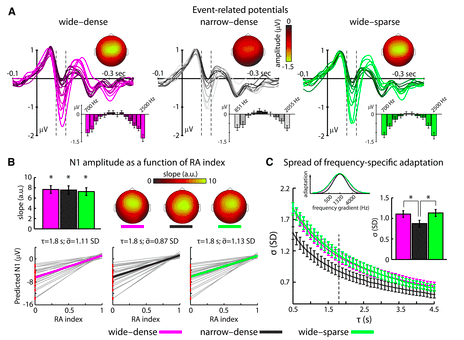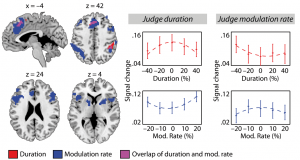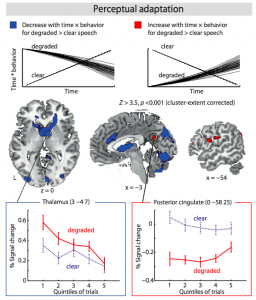For normal-hearing humans, categorizing complex acoustic stimuli is a seemingly effortless process, even if one has never heard the particular sounds before. Nevertheless, prior experience with specific correlations between acoustic stimulus properties affects the categorization in a beneficial way, as we show in our paper:
Prior experience with negative spectral correlations promotes information integration during auditory category learning
(by Mathias Scharinger, Molly Henry, and Jonas Obleser).
The article is in press at Memory & Cognition (available online). Our main finding is that stimuli differing in the location of two spectral peaks were better categorized if there was a negative correlation between the two spectral peaks than if there was a positive correlation. Since negative spectral correlations characterize phonetic speech properties, our findings suggest that short-term auditory category learning is influenced by long-term representations of abstract acoustic-phonetic properties (here: spectral correlations).
References
- Scharinger M, Henry MJ, Obleser J. Prior experience with negative spectral correlations promotes information integration during auditory category learning. Mem Cognit. 2013 Jul;41(5):752–68. PMID: 23354998. [Open with Read]
Complex sounds vary along a number of acoustic dimensions. These dimensions may exhibit correlations that are familiar to listeners due to their frequent occurrence in natural sounds-namely, speech. H […]





